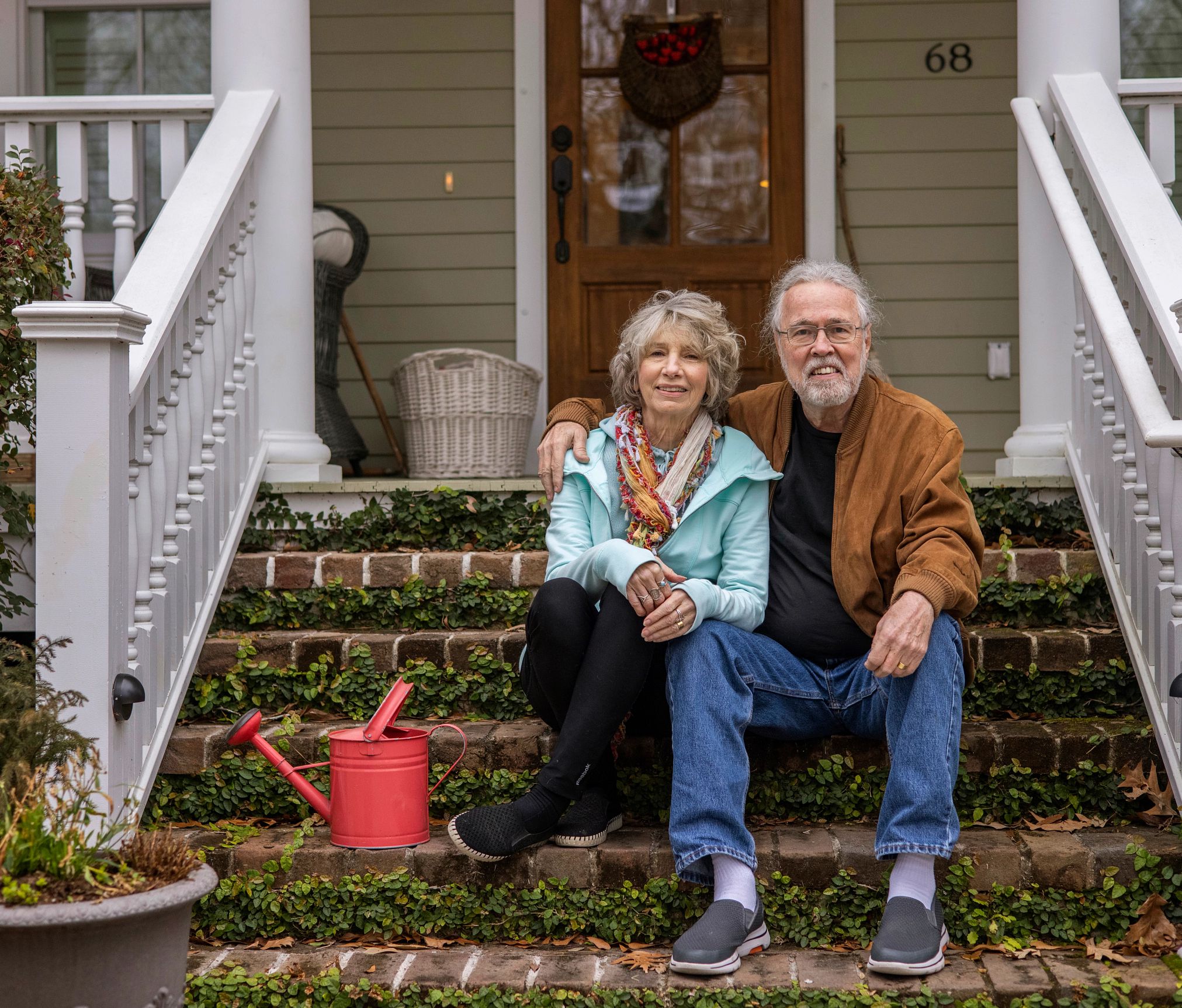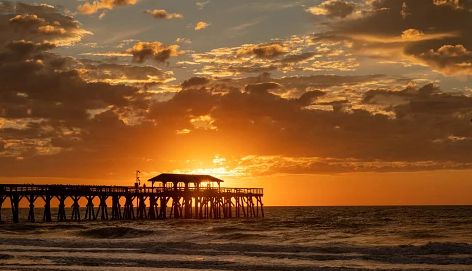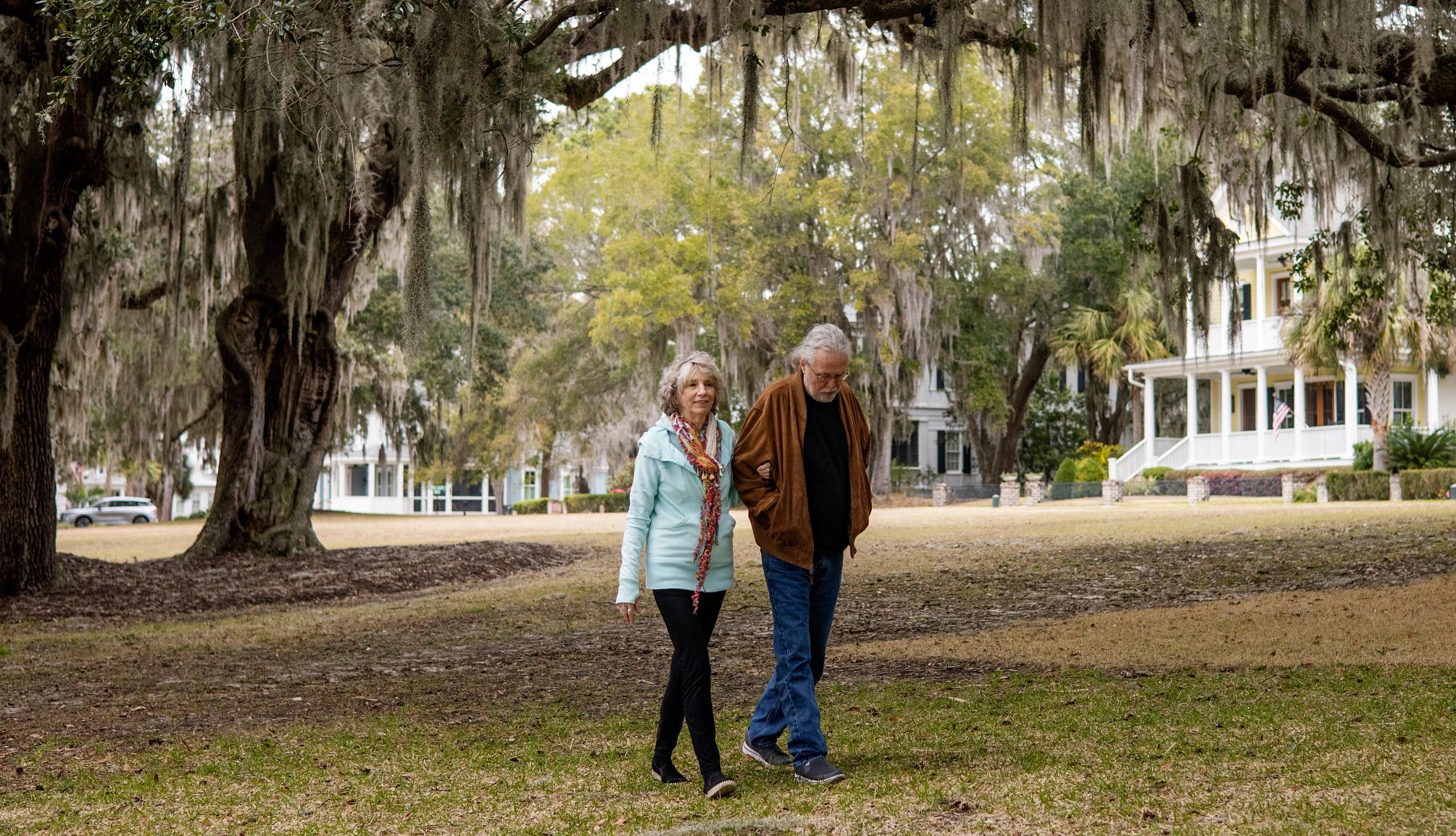AARP Hearing Center


When Bob Kraft and his wife, Joy, decided to retire in 2014, the longtime Cincinnati residents knew one thing about where they wanted to be.
“Neither my wife nor I are crazy about snow or cold weather,” says Kraft, a former newspaper reporter and editor who later worked in public relations and marketing.
The couple considered various locales in the Southeast but gravitated to a familiar destination — Beaufort, a small town in South Carolina’s coastal Sea Islands, not far from where Kraft’s father bought a vacation home in the 1970s. “My wife and I honeymooned there,” he recalls.
A decade later, Kraft, now 72, says they’re still happy with the choice. The couple lives in Habersham, a waterfront planned community a few minutes from historic Beaufort with houses built in the graceful Lowcountry style. A community dock on the nearby Broad River gives the avid kayakers a place to store their watercraft.
Many older Americans are following a similar path. South Carolina ranked second to Florida as a destination for retirees making interstate moves in 2023, according to an annual review of U.S. Census data by moving-services marketplace Hire A Helper. United Van Lines’ 2023 National Movers Study found that nearly 27 percent of people moving to the Palmetto State did so for retirement, the third-highest proportion in the country.


‘Slow and wonderful’
South Carolina has long been a haven for veterans who stay on after serving at one of the state’s eight military bases, says Pam Harrington, who has been a real estate agent in the Charleston area for more than four decades. In recent years, she’s seen a surge in retirees moving in from elsewhere, helping drive a nearly 11 percent increase in the state’s population from 2010 to 2020.
What’s the attraction? “Life is slow and wonderful,” Harrington says. “You have the beach and boating and sailing and golf and all the things that people like to do when they retire.”
Those factors have helped position the Palmetto State as an alternative to Florida, perennially the prime destination for retirees seeking sunnier climes, says Philip Gibson, a certified financial planner and vice president of Wealth Enhancement Group in Rock Hill, South Carolina.
“It’s smaller, you're dealing with less traffic, it’s easier to get around,” he says. “And I'm not a weather expert, but you’ve got to suspect that summers are not as hot as in Florida.”
Here are five reasons retirees might consider settling in the Palmetto State.
1. Climate
As Gibson notes, South Carolina summers are plenty warm but not quite as sticky as Florida’s. The average daily high during Charleston’s hot season (late May to mid-September) is around 83 degrees, four degrees less than Miami’s average during roughly the same period, according to Weather Spark, a website that amasses climate data. But there’s also some seasonal variety, with Charleston averaging about 65 degrees from December to March, compared to 78 degrees in Miami.







































































More From AARP
Top 5 States Where Retirees Are Moving
South Carolina gained on Florida as retirement relocations took a big jump in 2023AARP Reveals Top 7 Cities for Veterans
How those who’ve served can choose the best place to call homeA South Carolina Road Trip From Charleston
Visit the beautiful port city, a wildlife refuge, historic small towns and moreRecommended for You